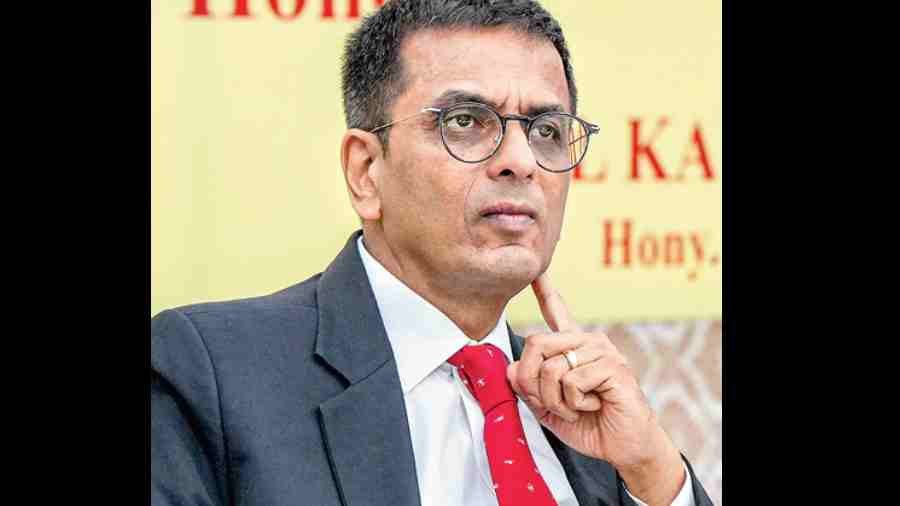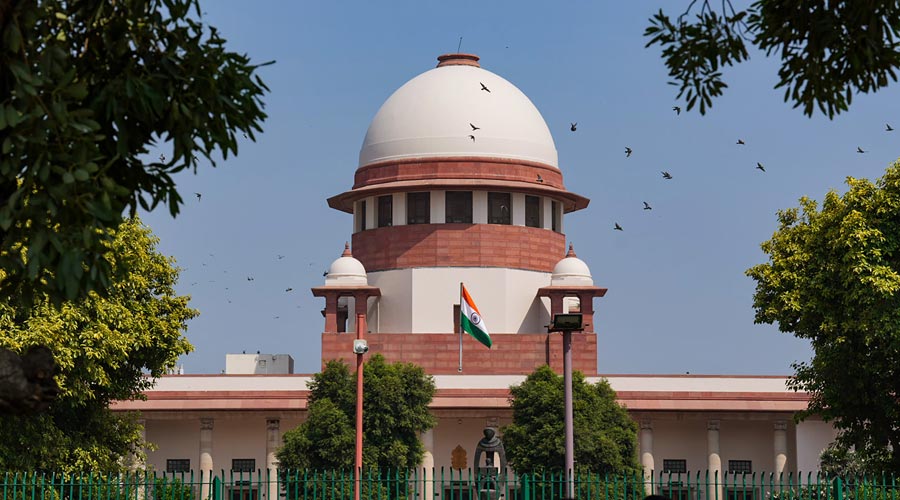Chief Justice of India D.Y. Chandrachud on Wednesday took up matters related to “urgent mentioning” despite heading a five-judge constitution bench that is dealing with the power tussle between the AAP government and the BJP-run Centre.
A deviation from convention, the move by the CJI has caused surprise in legal circles. Usually, whenever the CJI is absent or holds a constitution bench hearing, matters relating to urgent mentioning are taken up by the second senior-most judge of the Supreme Court.
If the second senior-most judge is not available, such urgent matters are heard by the third senior-most judge. Pleas for an urgent hearing are made every day before Court Hall No. 1 at 10.30am so that the cases get priority listing, depending on the urgency established.
The CJI is the “master of roster”, vested with the authority to list cases (allocate cases to specific judges). However, under the established convention, if the CJI is adjudicating a constitutional matter, which has its own sanctity, the urgent matters are listed by the next senior judge. Advocates usually queue up for getting the “out-of-turn” listing.
In fact, on the days he is not hearing a constitutional matter, Justice Chandrachud spends more than 45 minutes every day addressing such requests. What has puzzled the legal fraternity is Justice Chandrachud’s recent decision to hear the mentioning matters first and thereafter, convene the constitution bench. On Tuesday too, the CJI sat on a bench with Justice P.S. Narasimha to hear matters relating to urgent mentioning after which the bench rose.
Thereafter, the five-judge bench of CJI Chandrachud and Justices M.R. Shah, Krishna Murari, Hima Kohli and Narasimha assembled to hear the AAP-Centre case. The CJI’s decision to hear mentioning matters has prompted several lawyers to recall the unprecedented media conference in January 2018 by four judges who accused the then Chief Justice of India, Dipak Misra, of functioning in an “arbitrary manner” in allocating cases, following which the Supreme Court categorically ruled that the CJI is the “master of roster”.
The question of who is the “master of roster” was settled for once and all on April 11, 2018, by a three-judge bench headed by then CJI Misra.
The bench included the present CJI. Writing the judgment in 2018, Justice Chandrachud had said: “The entrustment of functions to the Chief Justice as the head of the institution is with the purpose of securing the position of the Supreme Court as an independent safeguard for the preservation of personal liberty. There cannot be a presumption of mistrust.”
The matter related to urgent mentioning was one of the few exceptions (under convention) that allowed other senior judges also to allocate cases if the CJI was busy on a constitution bench.
Now, the current second senior-most judge, Justice Sanjay Kishan Kaul, is also heading a five-judge constitution bench which is dealing with the Centre’s curative petition for enhancing the Bhopal gas tragedy victims’ compensation claim.
Hence, under the convention, the mentioning could have been taken up by the third senior-most judge, Justice K.M. Joseph. Justice Chandrachud, who is known for his calm, composed and firm handling of advocates, did not mince words on Tuesday to show that he was the “master of roster” during a mentioning plea by senior advocate and the president of the Supreme Court Bar Association (SCBA), Vikas Singh.
Singh had insisted on an urgent listing of a matter relating to the allotment of chambers for advocate, saying it had been the practice of the court to hear matters when it was listed and hence it should be heard immediately.
However, the CJI cut short the Bar president and said: “Don’t tell me about practices. I will decide what practices happen in my court….” The CJI then said he could not hear the matter the previous days as he had a packed administrative schedule.












